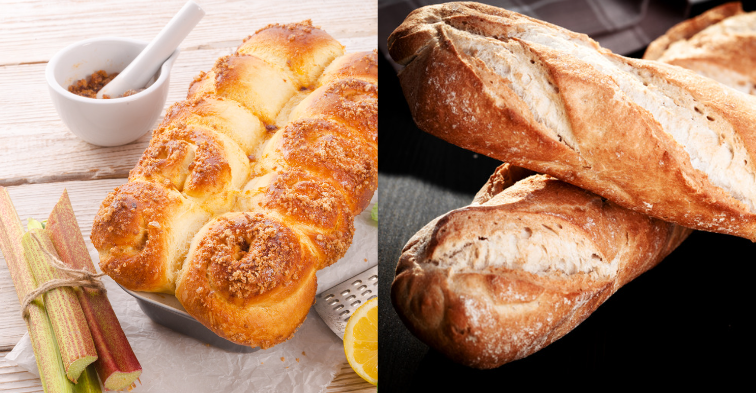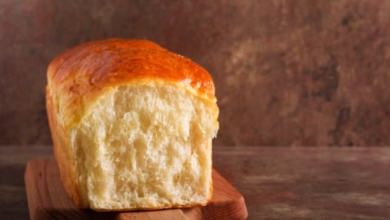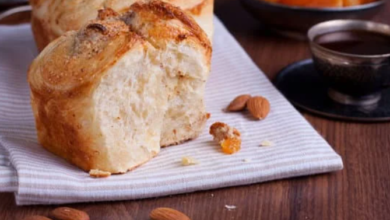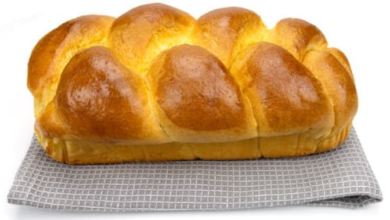Brioche Vs. Baguette: Bread Battle

What To Know
- Baguette, in contrast, is made with a simple dough consisting of flour, water, yeast, and salt, resulting in a crusty exterior and a chewy interior.
- The texture of brioche is soft, fluffy, and buttery, while that of baguette is crusty on the outside and chewy on the inside.
- Challah is a Jewish bread that is also enriched with eggs and butter but has a slightly different flavor profile and is typically braided.
In the realm of French baking, two titans stand tall: the buttery brioche and the crispy baguette. Both are culinary masterpieces, but they possess distinct characteristics that set them apart in the hearts of bread lovers. Let’s embark on a delectable journey to unravel the intricacies of brioche vs baguette.
Origins and History
Brioche, with its golden hue and soft, fluffy texture, originated in Normandy, France, during the 16th century. Its name is derived from the Old French word “broyer,” meaning “to knead.” Baguette, on the other hand, emerged in Paris in the early 19th century as a result of Napoleon’s desire for a bread that could be easily carried by soldiers.
Ingredients and Dough
The primary difference between brioche and baguette lies in their ingredients. Brioche is enriched with butter, eggs, and milk, giving it a rich, buttery flavor and a soft, luxurious texture. Baguette, in contrast, is made with a simple dough consisting of flour, water, yeast, and salt, resulting in a crusty exterior and a chewy interior.
Shaping and Baking
Brioche is typically shaped into round loaves or individual rolls, while baguette is formed into long, cylindrical loaves. The baking process also differs. Brioche is baked at a lower temperature for a longer duration, which allows the butter to melt and create its characteristic soft texture. Baguette, on the other hand, is baked at a higher temperature for a shorter duration, resulting in its crispy crust and chewy interior.
Texture and Flavor
The texture of brioche is soft, fluffy, and buttery, while that of baguette is crusty on the outside and chewy on the inside. Brioche has a rich, buttery flavor, while baguette has a more subtle, wheat-like flavor.
Uses and Accompaniments
Brioche is versatile and can be enjoyed on its own, toasted, or used in desserts such as French toast or bread pudding. Baguette is traditionally used as a sandwich bread or served alongside soups and salads. It is also a popular choice for making croutons or bread crumbs.
Nutritional Value
Brioche is higher in calories and fat than baguette due to its butter content. However, it is also richer in vitamins and minerals, including vitamin A, vitamin E, and iron. Baguette is a good source of carbohydrates and fiber.
Which One to Choose?
The choice between brioche and baguette ultimately depends on personal preference and the intended use. For a rich, buttery, and indulgent bread, brioche is an excellent choice. For a crusty, chewy, and versatile bread, baguette reigns supreme.
Final Thoughts
Brioche and baguette are both iconic French breads that offer unique culinary experiences. Their distinct flavors, textures, and uses make them indispensable ingredients in the world of gastronomy. Whether you prefer the buttery luxury of brioche or the rustic charm of baguette, these two breads will continue to delight bread lovers for generations to come.
What People Want to Know
Q: Is brioche healthier than baguette?
A: Brioche is higher in calories and fat but also richer in vitamins and minerals. Baguette is a good source of carbohydrates and fiber.
Q: Can I make brioche at home?
A: Yes, but it requires some skill and patience due to the enriched dough.
Q: What is the best way to store baguette?
A: Baguette should be stored in a bread bag at room temperature for up to 2 days.
Q: Can I freeze brioche?
A: Yes, brioche can be frozen for up to 3 months.
Q: What is the difference between brioche and challah?
A: Challah is a Jewish bread that is also enriched with eggs and butter but has a slightly different flavor profile and is typically braided.



